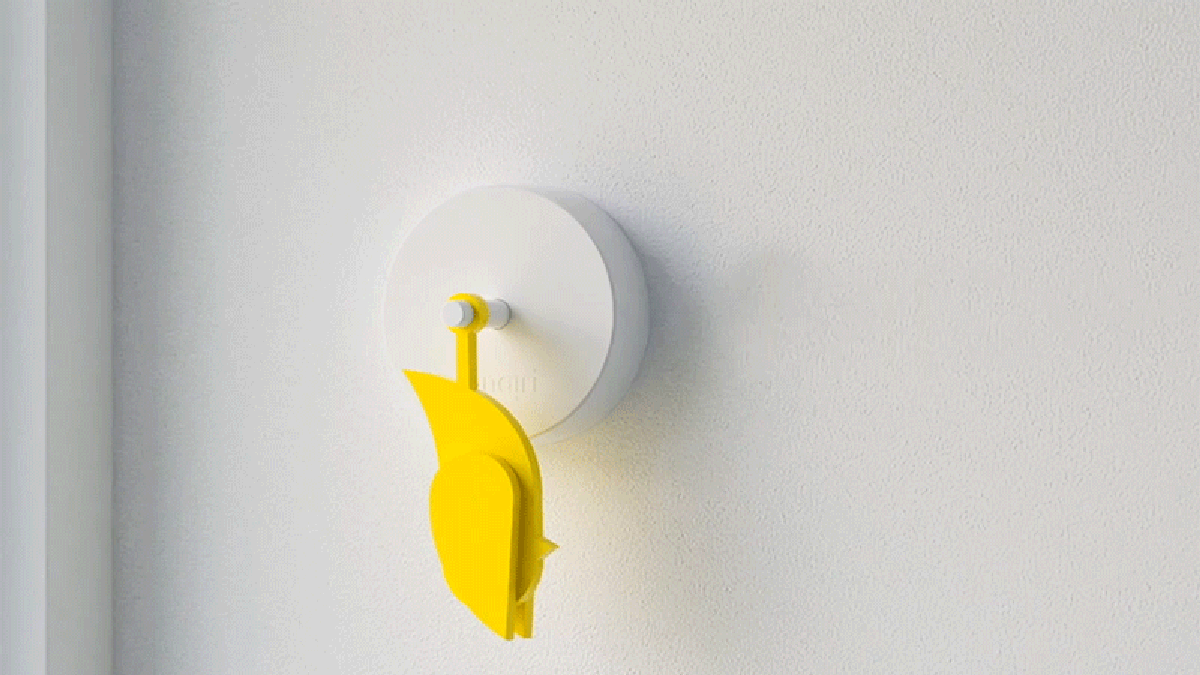
Inside the wall mountable device (made of recycled plastic) is a sensor that monitors the concentration of CO₂ in the air, as well as a USB rechargeable battery that’s good for about three months of use between charges. If the detected level of CO₂ in a room rises past 1,000 parts per million, a plastic yellow canary standing on a perch faints or drops dead, depending on how you want to interpret it hanging upside down and limp.
Users are encouraged to open windows to air out the room they’re in once the canary makes its dramatic performance, and when detected CO₂ levels fall below 1,000 PPM again, the bird miraculously regains consciousness (or comes back to life) and returns to standing atop its perch. Unlike offerings from Amazon or Dyson, the Canairi has no wireless connectivity, no accompanying apps, no flashing lights, and not even an audible alarm. It’s designed to be easy to understand and interpret through the animated bird’s actions.
The creators of the Canairi have turned to a Kickstarter crowdfunding campaign to help move from the prototype stage to a device they can ship to consumers. They’ve already far surpassed their $7,150 funding goal, and interested buyers can pre-order the Canairi with a $115 contribution, with delivery expected as early as October, later this year.
As with any crowdfunded product, you’ll also want to budget for patience, as shipping dates often slip. Particularly during an ongoing pandemic that continues to contribute to global supply chain issues that can make even the largest companies on Earth faint.
